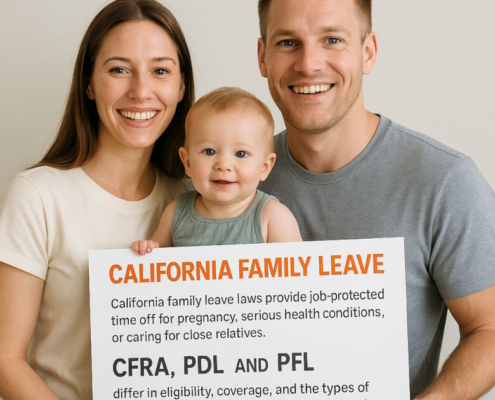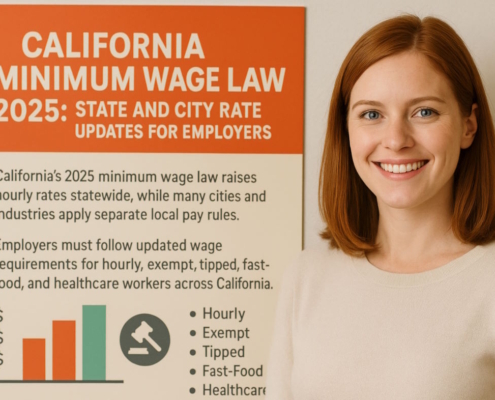Not Getting Paid for Hours Worked
Workers who have not been paid for work have the right to file a claim with the federal and state Department of Labor for unpaid wages.
By Brad Nakase, Attorney
Email | Call (888) 600-8654
Get Smarter: Search my blogs
Introduction
Sometimes paychecks are wrong, though it doesn’t necessarily mean anything underhand is going on. People make mistakes. Payroll or Human Resources make errors on occasion, accidentally docking a few hours of pay or delivering a paycheck late. However, it is critical that they fix the mistakes in a timely manner or face legal trouble.
When an employer does not provide the correct amount in a paycheck or skips a paycheck, an employee has the right to ask for a correction or for the missing check. It is also permissible to request that the employer not make the mistake again. After all, for an employee, that check is his or her livelihood, and even a few days’ delay can impact rent or groceries. At anytime you’re ready to get paid for hours worked, please contact our employment attorney to collect your unpaid wage.
Payroll Errors
There are many reasons why a payroll error might occur. There may be a data entry issue where an employee’s hours or hourly rate has been entered incorrectly. On occasion, payroll does not run at all, and checks arrive late or direct deposits are withheld. While these mistakes are most likely not intentional, they can still seriously effect employees who depend on their paychecks being accurate and on time.
Example: Michelle is the human resources manager at a tech company in Century City. One day, Michelle is overloaded with work and has to manually enter payroll data very quickly. She accidentally enters a new employee’s information incorrectly. Instead of getting paid $40 dollars an hour, Derek gets paid $14 dollars an hour. When Derek receives his incorrect paycheck, he brings the issue to Michelle’s attention. She swiftly apologizes and fixes the problem, giving Derek a correct paycheck.
How Payroll Errors Affect Employees
No matter how much they love their jobs, employees rely on their paychecks to take care of themselves and their families. Their salary is necessary to pay bills and rent, buy food, and care for family members and children. A payroll error can seriously impact an employee’s livelihood, as they are not able to afford necessities or pay household expenses. A simple error can easily result in an avalanche of financial problems for an employee. Employee wage and hour laws are meant to protect employees from such a crisis, ensuring that they are paid the amount they were promised on time.
Example: Antoine works at a factory that produces machine parts. He lives paycheck to paycheck, and his family, a wife and two daughters, relies on his salary. When there is a payroll error at his workplace, Antoine’s paycheck is late by a week. In that time, he barely has enough money to buy food for his family and he is unable to pay his electricity bill on time. Antoine cannot afford to pay his rent on time, and his landlord threatens to evict the family. In this case, a payroll error has the potential to financially devastate a hardworking employee and his family.
Correcting Payroll Errors
If an employee identifies a payroll error, he or she should inform his or her employer immediately. After describing the problem in detail, the employee should show the incorrect paystub as evidence. Ideally, HR should solve the problem at once. If an employee is owed money, the employer should cut him or her a check as soon as possible, according a Nakase Wade employer attorneys in San Diego defending against workers lawsuit. If a full paycheck is owed, then the employer should cut a check within twenty-four hours.
While it is unnecessary, it would not be a bad idea for an employer in this situation to compensate the aggrieved employee for any financial hardships caused by the delay.
Example: Devon works at an aerospace company. One month, there is a payroll error, and his paycheck is incorrect. He has been shorted one thousand dollars. He takes the matter to HR, showing them the problematic paystub. They instantly go about correcting the issue, and Devon’s manager cuts him a check on the spot for the unpaid wages.
Uncooperative Employers
If an employer refuses to immediately correct a payroll error, he or she may be sued for violating wage and hour laws. A lawyer specializing in employment law can help an aggrieved employee file a lawsuit and recover any financial losses.
Example: Sharon works at an office in Westwood. When there is a payroll error at work, she discovers that she has been shorted four hundred dollars. When she brings the issue to her boss, he scoffs and says, “It’s only four hundred bucks. No biggie. I’ll get it to you next month.” The thing is, Sharon has bills to pay. She hires a lawyer and sues her employer for violating wage and hour laws. Sharon wins the case, and her employer must pay her what he owes.
Have a quick question? We answered nearly 2000 FAQs.
See all blogs: Business | Corporate | Employment Law
Most recent blogs:
Contact our attorney.
































